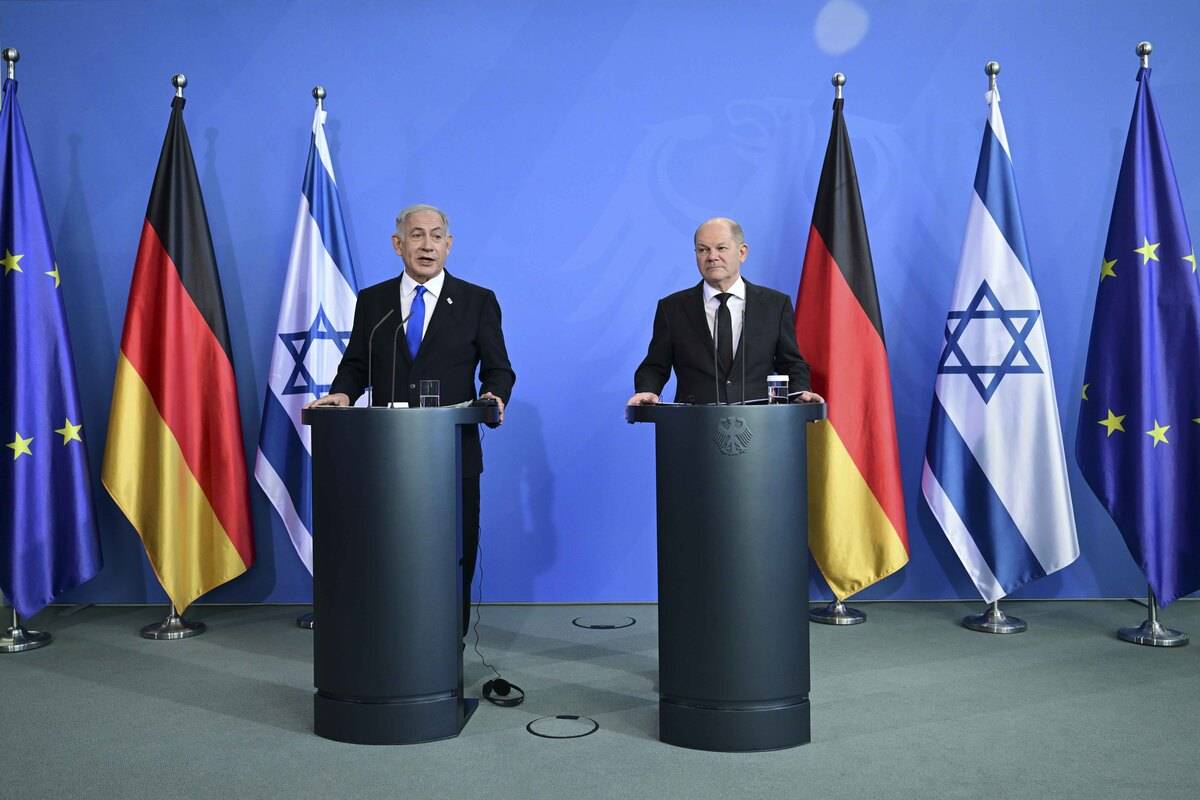In Hiroshima, peace lives in monuments, museums, and school curricula. It’s woven into the city’s identity and offered to the world as a symbol of recovery, resilience, and moral clarity born from catastrophe. Every summer, children study the horrors of nuclear war, listen to the stories of the hibakusha (nuclear weapon survivors), and are taught that peace must be protected at all costs.
In practice, however, peace here is often treated as something already secured—memorialized, ritualized, and disconnected from the violence unfolding elsewhere. Hiroshima remembers, but rarely speaks out on anything besides nuclear issues; the past is preserved, while the present is overlooked.
In October 2023, just days after Israel began its genocide in Gaza, a group of artists, students, and activists began holding a nightly vigil in front of the Atomic Bomb Dome. What began with thirty people became a sustained act of mourning and resistance. Candles are lit. Names are read. Flyers are handed to strangers. Art is performed. Silence—the default posture in Hiroshima’s peace narrative—is deliberately broken.
To speak of Gaza in the shadow of the Dome is to interrupt a script many would prefer to keep intact. The Hiroshima Palestine Vigil refuses this quiet reflection, instead asking: what does it mean to mourn publicly, politically, in a place that clings to peace but recoils from justice? What happens when remembrance becomes an excuse not to see?
In this first part of our conversation, three members of the group—Rebecca Maria Goldschmidt, a Jewish and Filipino anti-Zionist artist; Sailor Kannako, an artist and clothing store clerk from Hiroshima; and Anndoe, a Hiroshima-based noise musician—reflect on how the vigil began, how it’s been received, and why peace must be redefined: not as the absence of war, but as a refusal to look away wherever in the world atrocities are happening.
Hello, can you give us a little background as to how the vigil started?
R: The vigil started on Friday, October 13, 2023, as a response to October 7th. Tanami Aoe, a professor at Hiroshima City University, and myself, a graduate student at the same university, gathered at the Atomic Bomb Dome in Hiroshima’s Peace Park with around 30 people, mostly students and anti-war activists, to honor the Palestinian and Jewish lives lost, and call for an end to the 75+ year occupation, Israeli apartheid and the ongoing genocide. Along with another professor, Masae Yuasa, and other community members, we decided to return every night for a week and hosted speakers, lit candles, sang and shared information.
For me personally, I thought of it as a “sit-in shiva”, sitting shiva being the Jewish mourning period where you sit on the ground for a week and people come to your home to offer food and condolences. After a week, we kept coming back every night and it kept growing. We ended up standing in front of the dome for over 500 consecutive days, and then shifted to a less rigorous schedule, with some members still coming to stand three or four days a week. Now, we are there usually three days a week as a larger group to continue to make noise and to keep Palestine in the consciousness of every single person who passes through the Peace Park.
What is the main message or goal of this vigil? In other words, what do you hope it stands for and achieves?
SK: To appeal to the world that war, genocide, and colonialism are not things of the past, but continue to this day, at the Atomic Bomb Dome, which is a symbol of peace.
A: FREE PALESTINE. FREE GAZA. STOP GENOCIDE RIGHT NOW. And FREE OURSELVES.
R: End Israeli Apartheid! Abolish Zionism! Abolish Israel! LandBack! And International Solidarity Forever! Our goal is to not let people forget about Palestine and Gaza, and to spread information about our collective responsibility.
What do you think Hiroshima represents and what do you believe it should represent today?
SK: When we stand at the Atomic Bomb Dome, many passersby avoid photographing us. They take a photo of the Dome, then quickly move on. This scene, which plays out almost every day, feels like a symbol of Hiroshima today.
Hiroshima calls itself a “City of Peace,” but when it talks about the atomic bomb or war, it speaks of them as things of the past and pays no attention to the genocide unfolding in Gaza right now. For example, every summer, children in Hiroshima—from elementary school to high school—participate in a program called “Peace Studies.” They listen to the voices of atomic bomb survivors and learn about the destruction caused by the bomb. The message they receive is: “To protect peace, we must never repeat the same suffering.” There is no doubt in this message.
But still, we must ask: What is peace? Has peace really been achieved? In Hiroshima—and more broadly in Japan—the phrase “Let’s protect peace” is often repeated. But peace is not presented as something to be fought for or built; it’s treated as something we already have. From childhood, we’re taught that the war is over, full stop. Because of this, the suffering of the atomic bomb victims rarely overlaps—emotionally or politically—with the suffering of the people of Gaza. In Hiroshima today, “peace” has become an excuse not to think.
In that context, do you feel the Japanese government is doing enough, or saying enough, about what’s happening in Gaza?
SK: Not enough at all. First of all, the government should take action to put diplomatic or economic pressure on Israel to stop the genocide, but they still have established economic cooperation with Israel, have not imposed sanctions, and Japan’s Ministry of Defense is even planning to purchase weapons from Israel.
Basically, Japan’s policy decisions are always made while looking to the United States (just like how Japan has not ratified the Treaty on the Prohibition of Nuclear Weapons, despite being the only country to have suffered atomic bombings), and this is the same for Palestine and Israel.
The most shocking moment was that when the United States stopped funding UNRWA in 2024, Japan simply followed suit and stopped contributing. Before October 7th, Japan had been working hard to provide humanitarian assistance in Palestine for many years, but now it easily betrayed the trust of the Palestinian people. Many schools and hospitals that Japan has built and operated using public funds (our taxes) have been destroyed by Israeli attacks, but the Japanese government has not protested to Israel about this.
R: While the Japanese government has made miniscule gestures of concern for Gaza, the bottom line is that money talks. Recent data shows that Japan makes about $1.3 billion in both import and export trade with Israel, putting it in the top 10 countries doing business with the apartheid state. The general public is completely unaware of the fact that their own pension fund (the largest pension fund in the world!) is invested 227 billion yen (1.3 billion Euros) in Israeli bonds and another 874 billion yen (5 billion Euros) in complicit companies like Elbit Systems, Lockheed Martin, BAE Systems, Caterpillar, etc. Like most Western countries, the media is wholly complicit in obscuring the govt and Japanese companies’ own complicity. The newspapers still don’t use the word “genocide” and the issue is often portrayed as a problem of “terrorism” or “religious conflict.” Despite the widespread unawareness, in the past two years our movement has grown extensively all across the country and expanded to have small groups in most cities, even in rural areas, throughout Japan.
Can you tell us more about how the Japanese media and general public responded?
SK: Just as the government makes decisions that depend on the United States, the media and citizens cannot stop making decisions that depend on others. It’s almost like a disease. Most TV stations and newspapers don’t write their own opinions. In every article and every news program, the same phrases are copy-and-pasted, and the subject of who is committing the genocide isn’t made clear. Also, vague expressions are used as if the people of Gaza are dying accidentally. This is because they [the media] are extremely afraid of making mistakes, receiving criticism, and being embarrassed by deviating from mainstream values.
In addition, the media rarely mentions Israel’s long colonial rule over Palestine, and there is almost no reporting that positions the genocide as part of that colonial history. As a result, the phrase “Islamic organization Hamas” is overemphasized, and many Japanese interpret what is happening in Gaza as a religious war between Judaism and Islam. That framing makes it feel distant and incomprehensible, especially in a largely non-religious country like Japan. It becomes something people feel they don’t need to understand, and therefore don’t have to care about. By doing so, they don’t feel compelled to feel sad or guilty about their privileged lives.
Articles that confront us with the bloodsoaked reality of Gaza aren’t welcome. The media avoids thinking for themselves and making decisions on their own responsibility, instead it clings to the performance of neutrality. This ultimately leads to concealing the reality and accelerating the genocide. Trying to be neutral is not harmless.
Under a capitalist and patriarchal social system, citizens are also domesticated so they can’t trust their own senses and make the choices they truly believe are right. The choices supported by those in power, such as economically successful or highly educated people, or people representing some organization, are interpreted as correct and chosen. The fact that there are almost no political statements among Japanese celebrities (actors, athletes, artists, etc.) is also a major reason why solidarity with Palestine doesn’t spread in this country.
Many Japanese people cannot decide for themselves the answers to the questions, “Is it right for me to speak up for Palestine?”, “Is it cool?”, and “Is it necessary?” Concerned about the values of the majority that consider political statements to be taboo, they weigh their wish of “I don’t want anyone to be killed” against the risk of being humiliated and not being accepted by others, and ultimately choose to take no action.
So, have you faced any criticism or pressure to stay silent about the genocide?
R: We are often told to shut up or turn it down. We seem to “ruin” the experience of an imagined, nostalgic post-nuclear “peace” landscape where people should be able to “contemplate mortality” without actually confronting the present-day-right-fucking-now Holocaust in Gaza. We often receive noise complaints to the city, the most revealing was someone who called the office and apparently, in a very small voice said: “Please make them stop, what they’re talking about is just too sad.”
The city’s emphasis on “silence” and “silently praying for peace” is part of the ongoing erasure of Japan’s own imperialist war crimes, occupation, sex slavery, dehumanization and genocide in multiple Asian countries, and also obscures Japan’s own rapid re-militarization and massive defense spending. Of course, that is also done in conjunction with Israel’s technology and weapons. Not to mention, Japan’s own commitment to nuclear power and nuclear weapons.
We have intentionally utilized noise, sound, loud vocals and music, and even cultivated an intentional visual clutter in front of the dome to make sure that it is impossible to not see us or not hear us. Yet we are still ignored by so many people. In Hiroshima, more people are likely to ignore us and maintain their own disturbing silence, than they are to speak out to silence us––even if they can’t stand us. Our loudest critics are zionists going berzerk and ranting about beheaded babies on October 7th, the same lies even after two years and actual beheaded babies in Gaza.
Do you feel supported by other activists or peace groups in Japan?
R: In Hiroshima, representatives of the postal workers’ union, women’s groups, and many of the old guard anti-war and anti-nuclear activist groups were the first to join us at the vigil. Nihon Hidankyou (the Association of Atomic Bomb Survivors), the hibakusha group that won the Nobel Peace Prize last year, eventually showed their support and their members now stand with us at the dome.
But it took time. From the beginning, many groups were unsure of what position they should take in the aftermath of October 7th and there was a lot of hesitance to join us. We felt the most solid and immediate support from the music community, specifically punks, elders, and honestly just individual people who have felt that what they’re seeing is wrong and they cannot bear to stay silent. I would say that we have more single individuals coming out to support than anyone who is representing an organization, although many of our members also participate in other activist groups.
Have you had any encounters with police during the vigil?
R: We are very privileged in the sense that the police do not harass us, and generally just monitor our presence in the park. Our situation is absolutely nothing like what you are dealing with in Berlin. We are very aware of the level of surveillance that our entire movement in Japan experiences, and all of our marches are escorted by the police. If we are too loud, sometimes they will come to tell us to turn it down, but it’s usually a mild interaction.
I am only aware of three arrests of people in relation to the Palestine movement, two were for vandalism––stickers and graffiti. But going to jail in Japan has very high social consequences: you can’t get a job, you shame your family, etc. So risking arrest in Japan is really quite a serious commitment that most people, even those who choose to be involved in politics, are not willing to take. I believe this has also put a limit to the possibility for actions here––there is no sense of the power of collective civil disobedience, despite Japan’s New Left history. Although the sit-in and demonstrations are the traditional ways that even the hibakusha who started the anti-nuclear movement in Hiroshima would––and still sometimes do––exercise their rights. Tokyo might have a completely different perspective because their police are much more aggressive and numerous. Hiroshima is quiet, but they know who we are.
Part 2 of the interview will be published soon. In the meantime, as the anniversary of the atomic bombing approaches, the vigil is hosting a series of events leading up to and on August 6th in Hiroshima.
In Berlin, a commemorative rally will be held on August 9th at Praeser Platz to mark 80 years since the atomic bombing of Nagasaki, connecting struggles across time and geography through acts of remembrance and resistance.




